Best Student Credit Cards 2023
Students can get hundreds of dollars in cash back while they build credit with these offers from popular issuers.

Ellen B. Kennedy
Profit and prosper with the best of Kiplinger's advice on investing, taxes, retirement, personal finance and much more. Delivered daily. Enter your email in the box and click Sign Me Up.
You are now subscribed
Your newsletter sign-up was successful
Want to add more newsletters?

Delivered daily
Kiplinger Today
Profit and prosper with the best of Kiplinger's advice on investing, taxes, retirement, personal finance and much more delivered daily. Smart money moves start here.

Sent five days a week
Kiplinger A Step Ahead
Get practical help to make better financial decisions in your everyday life, from spending to savings on top deals.

Delivered daily
Kiplinger Closing Bell
Get today's biggest financial and investing headlines delivered to your inbox every day the U.S. stock market is open.

Sent twice a week
Kiplinger Adviser Intel
Financial pros across the country share best practices and fresh tactics to preserve and grow your wealth.

Delivered weekly
Kiplinger Tax Tips
Trim your federal and state tax bills with practical tax-planning and tax-cutting strategies.

Sent twice a week
Kiplinger Retirement Tips
Your twice-a-week guide to planning and enjoying a financially secure and richly rewarding retirement

Sent bimonthly.
Kiplinger Adviser Angle
Insights for advisers, wealth managers and other financial professionals.

Sent twice a week
Kiplinger Investing Weekly
Your twice-a-week roundup of promising stocks, funds, companies and industries you should consider, ones you should avoid, and why.

Sent weekly for six weeks
Kiplinger Invest for Retirement
Your step-by-step six-part series on how to invest for retirement, from devising a successful strategy to exactly which investments to choose.
This article highlights our picks for the best student credit cards. We may get compensation if you visit partner links on our site. We may not cover every available offer. Our relationship with advertisers may impact how an offer is presented on our website. However, our selection of products is made independent of our relationship with advertisers. Rates checked September 7, 2023.
Student credit cards often provide high rewards in common spending categories for college students, such as dining out or gas. Or they may pay a healthy flat rate of cash back on every purchase. College students who are on the hunt for a rewards credit card will find that many issuers have designed cards aimed toward their age group and if you plan to study abroad, these cards are good choices as they don’t charge foreign transaction fees.
To help you select a student card, we’ve listed some great options. For each one, we’ve calculated a typical annual reward that assumes $3,000 charged to the card annually.
If you’re looking for a card that provides good cash-back rewards for users of all ages, see our guide to the best cash back credit cards. And if you’d like to open a card that offers points or miles for travelers, see the best travel rewards credit cards.
Quick List
In a hurry? Here's a brief overview of the cards on our list, along with quick links that let you jump down the page to read more information on each card we feature.
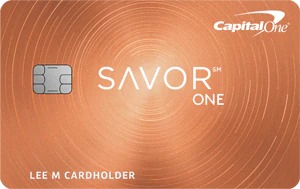
Capital One SavorOne Card
Capital One offers a student version of its dining rewards credit card, and the maximum-reward categories may fit well into a typical college student’s budget. The $100 spending requirement to earn an initial bonus is relatively low, making it manageable for many college students.
Read more below >
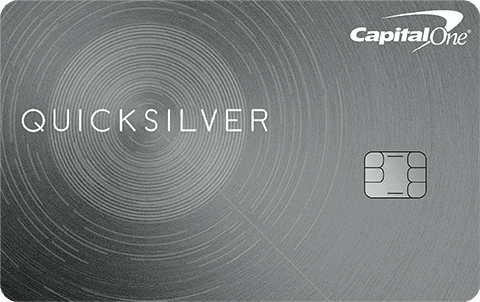
Capital One Quicksilver Card
College students get a solid cash back rate of 1.5% on most purchases, and the card comes with a manageable spending requirement to earn the sign-up bonus. But, most importantly, you'll get access to travel booking benefits and earn up to 5% on any travel booked through the Capital One Travel Center.
Read more below >
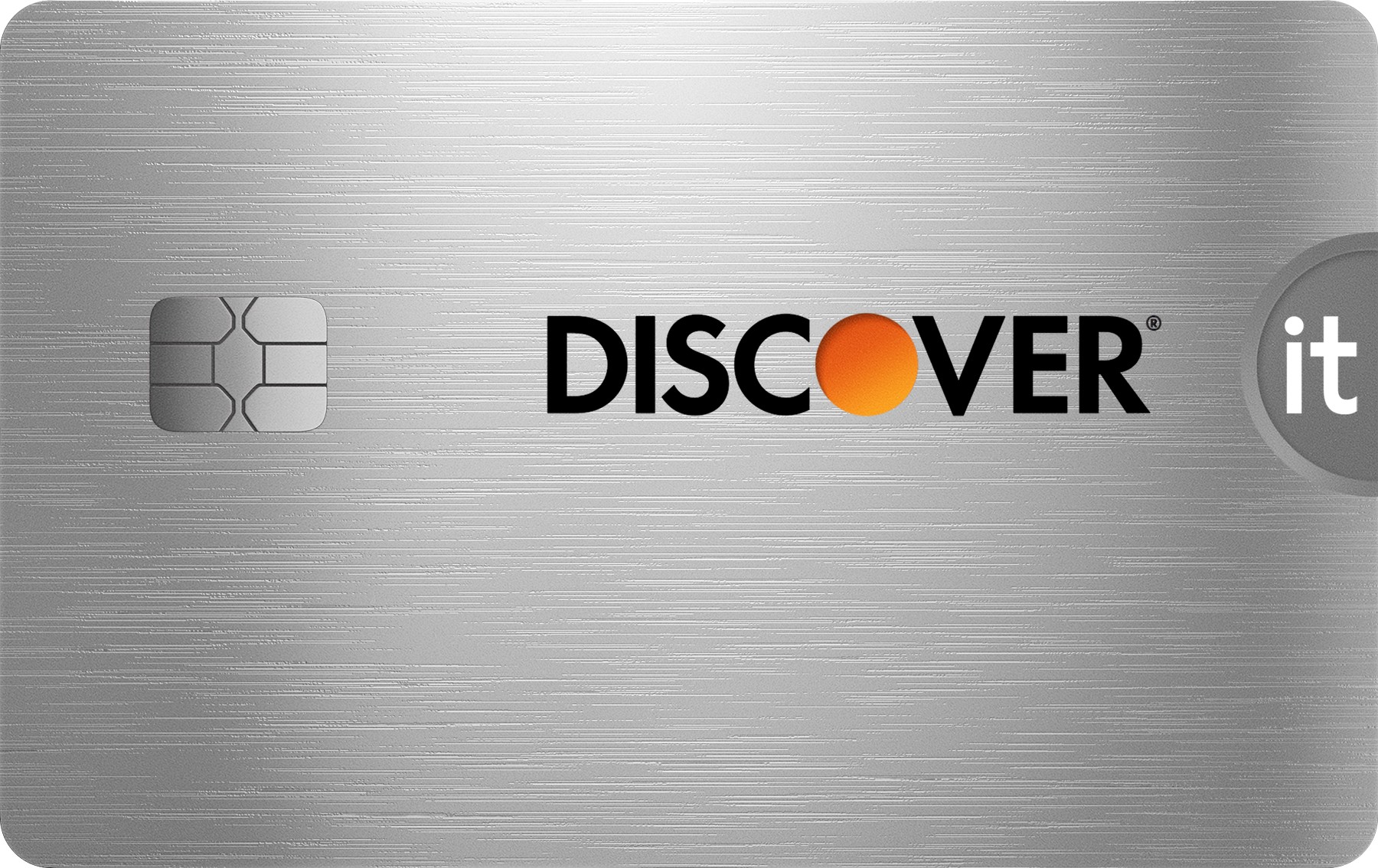
Discover it Student Chrome Card
This card provides straightforward, clear-cut rewards in categories that make sense for students. It never charges a penalty interest rate after a late payment, and it waives the late fee for the first missed payment. You get one strike (not three), but that's better than zero...
Read more below >
Capital One Quicksilver Rewards for Students
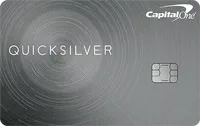
Capital One Quicksilver Student Cash Rewards Credit Card
College students get a solid cash back rate of 1.5% on most purchases, and the card comes with a manageable spending requirement to earn the sign-up bonus. Plus, you'll get access to travel booking benefits and earn up to 5% on travel booked through the Capital One Travel Center.
- Interest rate: 19.99%, 25.99% or 29.99% variable APR for purchases.
- Balance transfer fee: $0 at the Transfer APR, 4% of the amount of each transferred balance that posts to your account at a promotional APR that Capital One may offer to you.
- Annual fee: None.
- Pre-approval available: Yes.
- Top rewards rate: Get 5% cash back on hotel and rental-car bookings through Capital One Travel; through November 14, 2024, you also get 10% back on Uber and Uber Eats purchases.
- Other benefits: All other spending earns 1.5% cash back. Through November 14, 2024, cardholders get a complimentary membership to Uber One, which provides discounts on Uber Eats orders and Uber rides
- Redemption: Redeem cash back in any amount as a check or statement credit, or use rewards to book travel through Capital One
- Sign-up bonus: $50 back if you spend $100 in the first three months
Capital One SavorOne Rewards for Students Mastercard
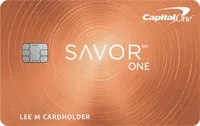
Capital One SavorOne Student Cash Rewards Credit Card
Capital One offers a student version of its dining rewards credit card, and the maximum-reward categories may fit well into a typical college student’s budget. The $100 spending requirement to earn an initial bonus is relatively low, making it manageable for many college students.
- Interest rate: 19.99%, 25.99% or 29.99% variable APR for purchases.
- Balance transfer fee: $0 at the Transfer APR, 4% of the amount of each transferred balance that posts to your account at a promotional APR that Capital One may offer to you.
- Annual fee: None.
- Pre-approval available: Yes.
- Top rewards rate: 3% cash back on restaurant, entertainment, streaming and grocery purchases. Plus, get 8% back on purchases through the Capital One Entertainment ticketing platform and 5% back on hotel and rental-car bookings through Capital One Travel; through November 14, 2024, you also get 10% back on Uber and Uber Eats purchases.
- Other benefits: All other spending earns 1% back. Through November 14, 2024, cardholders enjoy a complimentary membership to Uber One, which provides discounts on Uber Eats orders and Uber rides.
- Redemption: Redeem cash back in any amount as a check or statement credit, or use rewards to book travel through Capital One.
- Sign-up bonus: $50 back if you spend $100 in the first three months.
Discover it Student Chrome
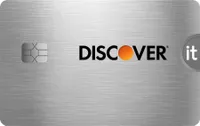
Discover it Student Chrome
This card provides clear-cut rewards in categories that make sense for students, and it never charges a penalty interest rate after a late payment.
- Interest rate: 0% on purchases for six months, then 18.24% to 27.24% APR.
- Annual fee: None.
- Pre-approval available: Yes.
- Top rewards rate: 2% back at gas stations and restaurants (on up to $1,000 in combined quarterly spending) and 1% on other purchases.
- Other benefits: The card is forgiving to young folks who are getting the hang of managing a credit card: It never charges a penalty interest rate after a late payment, and it waives the late fee for the first missed payment; you get one strike – not three – but it’s better than zero.
- Redemption: Cash back is redeemable in any amount as an account credit, bank-account deposit or charitable gift; you can also apply cash back to make purchases with select merchants, such as Amazon, or to buy gift cards.
- Sign-up bonus: A match of cash back earned after one year, doubling your rewards; most other cards require you to spend a certain amount within the first few months to capture a bonus, which may be a steep hill to climb (and also encourage less-prudent spending).
As an independent publication dedicated to helping you make the most of your money, the article above is our view of the best deals and is not the opinion of any entity mentioned such as a card issuer, hotel, airline etc. Similarly, the content has not been reviewed or endorsed by any of those entities.
Our review comparison criteria
For each card below, we’ve calculated typical annual rewards that assume $3,000 is charged to the card annually.
Interest rates, fees, rewards, and other terms listed in this article are subject to change. Before you apply for a credit card, check its current terms and conditions with the issuer.
What Makes Student Credit Cards Different?
For the most part, student credit cards work in the same way as traditional credit cards. However, they typically offer features that make them more beneficial to college students, including the following characteristics.
- Don't require great credit to get approved: You may be able to get approved for a student credit card with a limited credit history or even no credit history at all.
- Low credit limits: You likely won't rack up a sizable amount of credit card debt with a student credit card because your credit limit may only be a few hundred dollars.
- Credit-building benefits: Like most traditional credit cards, student cards usually report your account activity to all three credit bureaus: Experian, Equifax and TransUnion. You may also get certain benefits when you practice good credit behaviors, such as a credit line increase with responsible use.
How to build credit with a student card
If you can qualify, using a credit card wisely can be a great way for a college student to build a credit history. You may have already taken out student loans, but that debt may not contribute much to your credit history until you start making payments after graduation. Opening and managing a credit card is new territory for most college students, so it’s especially important to make sure that you understand how to avoid paying interest and how you can boost your credit score. To protect your credit and steer clear of late fees, make sure to pay your bill on time each month. And to sidestep hefty interest charges, pay your bill in full rather than making only the minimum payment.
In the meantime, you can build credit with a student credit card when you use the card responsibly and pay your bill every month. What's more, you can avoid interest charges if you pay your monthly statement balance in full. You may also be able to earn rewards along the way.
If you're not sure about getting your own credit card or you don't qualify to get one on your own, consider asking a parent to add you as an authorized user on their credit card account. If they've used the account responsibly, it can help you establish a positive credit history.
How To Qualify for a Student Card
Once you have selected a card, make sure that you are well-positioned to get approved for credit. Opening a new credit card account will temporarily lower your credit score, so you want to be sure you can get approved for the credit card you want. One way to avoid this ding to your credit score is to get pre-approved first. We have noted in each card description if pre-approval is an option.
The Credit CARD Act limits credit card options for college students, so it's important to know what's required to get approved:
- You generally need to be a college student: Whether you're an undergraduate or graduate student, some card issuers may ask you to provide your school's name during the application process.
- You may need some credit history: Some student credit cards require that you have at least some credit history to get approved. Check with the card issuer before you apply to understand the requirements.
- You may need a co-signer: If you're under the age of 21 and you don't have independent income, you may need a co-signer to get approved. Unfortunately, most of the major credit card issuers don't allow co-signers.
- Allowable income depends on your age: If you're under the age of 21, you'll need to prove that you have sufficient independent income to repay any debt you incur. If you're 21 or older, you may include a variety of income sources that you have reasonable access to, such as personal income, spousal income, scholarships, grants, trust fund distributions and more.
How to Pick the Right Card
Before you choose a student credit card, it's important to research and compare multiple options to determine which one is the best fit for you. Here are some factors to keep in mind:
- Eligibility criteria: If you haven't had the chance to build a credit history yet, some cards may be out of reach.
- Rewards: Many student credit cards offer rewards on your everyday purchases. Look at the rewards rates for each card you're considering and determine which one aligns best with your spending habits.
- Annual percentage rate (APR): Student credit card interest rates are generally high, but it's still a good idea to try to limit your potential costs if you carry a balance. Remember, too, that you can avoid interest altogether if you pay your balance in full each month.
- Annual fee: Student credit cards typically don't charge annual fees, but there are some other credit cards designed for people with little or no credit that may charge an annual or even a monthly fee. Try to avoid these costly options.
- Other features: Look at other features each card may offer. For example, a card may be more attractive to you if you can get a credit line increase after a handful of months or enjoy an introductory 0% APR on purchases for a short period after you open the account.
Tips for Building Credit With Student Cards
Once you've been approved for a student credit card, here are some tips to help you make the most of your card and build a positive credit history:
- Always pay on time: Your payment history is the most influential factor in your FICO credit score, so it's critical that you pay your bill on time every month. If you accidentally miss a payment, get current as soon as possible — late payments aren't reported until you're 30 days past due. To avoid forgetting, consider setting up automatic payments.
- Avoid racking up a high balance: Your credit utilization ratio is the percentage of your available credit that you're using at a given time. For example, if you have a $150 balance and a $300 credit limit, your utilization ratio is 50%. The lower your ratio, the better it is for your credit score, so try to keep it low by using the card sparingly or making multiple payments throughout the month.
- Avoid opening multiple accounts at once: Having more than one credit card can help you establish a broader credit profile, but opening multiple accounts in a short period can hurt your credit, especially when you're just starting out.
As you use your student credit card responsibly, you'll be in a much better position to build and maintain a good credit score over time.
Profit and prosper with the best of Kiplinger's advice on investing, taxes, retirement, personal finance and much more. Delivered daily. Enter your email in the box and click Sign Me Up.

Lisa has been the editor of Kiplinger Personal Finance since June 2023. Previously, she spent more than a decade reporting and writing for the magazine on a variety of topics, including credit, banking and retirement. She has shared her expertise as a guest on the Today Show, CNN, Fox, NPR, Cheddar and many other media outlets around the nation. Lisa graduated from Ball State University and received the school’s “Graduate of the Last Decade” award in 2014. A military spouse, she has moved around the U.S. and currently lives in the Philadelphia area with her husband and two sons.
- Ellen B. KennedyRetirement Editor, Kiplinger.com
-
 Dow Leads in Mixed Session on Amgen Earnings: Stock Market Today
Dow Leads in Mixed Session on Amgen Earnings: Stock Market TodayThe rest of Wall Street struggled as Advanced Micro Devices earnings caused a chip-stock sell-off.
-
 How to Watch the 2026 Winter Olympics Without Overpaying
How to Watch the 2026 Winter Olympics Without OverpayingHere’s how to stream the 2026 Winter Olympics live, including low-cost viewing options, Peacock access and ways to catch your favorite athletes and events from anywhere.
-
 Here’s How to Stream the Super Bowl for Less
Here’s How to Stream the Super Bowl for LessWe'll show you the least expensive ways to stream football's biggest event.
-
 7 Ways to Automate Your Finances and Supercharge Your Savings
7 Ways to Automate Your Finances and Supercharge Your SavingsStarting the process can be daunting, but the sooner you jump in, the easier it could be to manage your financial life. Your future self will thank you.
-
 What Is APR?
What Is APR?Even for those who pay off their credit card balances every month, knowing your APR is a good credit habit.
-
 What to Know About CD Ladders, A Flexible Way to Save
What to Know About CD Ladders, A Flexible Way to SaveSavings One way to keep your earnings on track is to spread out your cash.
-
 Should You Use a Credit Card Travel Portal?
Should You Use a Credit Card Travel Portal?credit cards Some credit cards come with travel portals, where you can redeem points and miles for trips. Is it the best option?
-
 Overdraft Fees Are On Their Way Out
Overdraft Fees Are On Their Way OutSmart Buying New overdraft policies are emerging as consumers and government officials pressure banks to get rid of the fees.
-
 Virtual Numbers Add Security to Credit Card Shopping
Virtual Numbers Add Security to Credit Card ShoppingTechnology Some mobile wallets offer this feature, which randomly generates virtual digits that are linked to your credit card.
-
 New Buy Now, Pay Later Options
New Buy Now, Pay Later OptionsSmart Buying If you’ve been considering a BNPL plan, make sure the credit card in your wallet doesn't already have you covered.
-
 Best Banks for Parents With Kids
Best Banks for Parents With KidsRaising Money-Smart Kids Kids learn the ropes of banking with dedicated checking and savings accounts from these online banks, and parents have impressive options for their own needs, too.